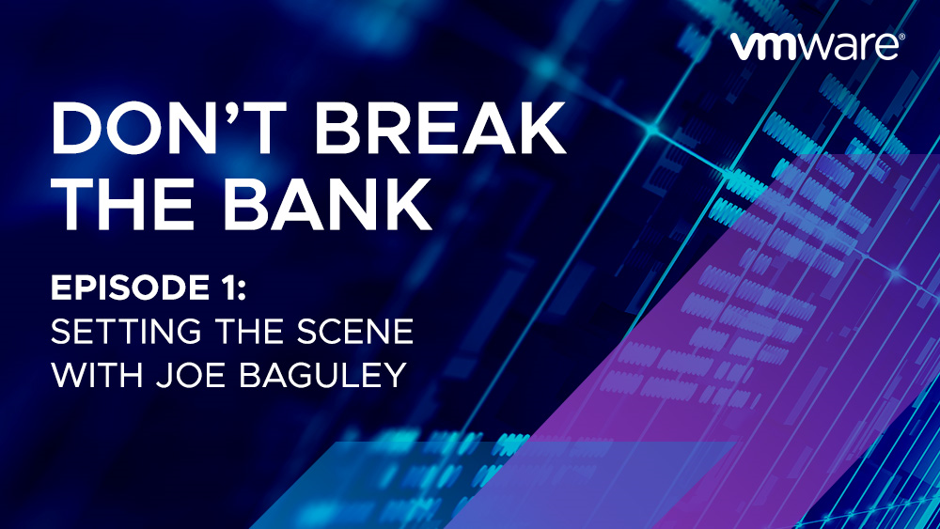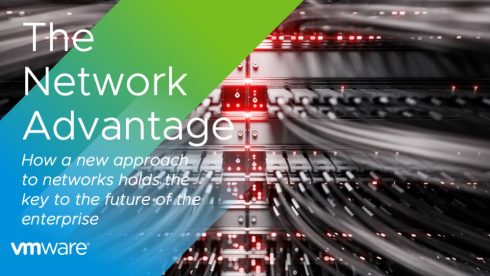DISCLAIMER: this article is older than one year and may not be up to date with recent events or newly available information.
By Matthew O’Neill, Financial Services Industry Managing Director, Office of the CTO, VMware
One of the great things about my job is that even after thirty years in banks and banking IT and now approaching three years at VMware, there’s more to learn every day. There are things that are new, things that have changed, or things that I just never even considered in the past. Being on the buyer, or customer side, I knew the ins and outs of the technology we were deploying, what we were trying to achieve, how it worked, and what we needed. I think I’ve got a fairly good understanding of what CIOs and their reports working in financial services are thinking about technology and the challenges this highly regulated and changing industry is tackling.
What’s surprised me is how little I knew about what my vendors actually offered. Sure, there were a lot of things I was not interested in that delivered to use-cases I did not have, but I thought I had a clear picture of who offered what, their areas of expertise and their services. What I actually knew was what my vendors did for me, and what they told me they offered as part of a project or renewal. What I had seemed to have missed is how these products and roadmaps have evolved, how some customers have exploited every ounce of capability, yet others barely scratch the surface in comparison.
How did this happen? To put it bluntly, when you are an executive on the customer side, if you are dealing with a vendor after the deal has been signed, it’s because something has gone wrong. You end up developing relationships and getting insights from companies that aren’t quite delivering on what was agreed. Conversely, those that are able to install their products and have them running effectively are the ones you rarely have time to see.
This was brought into sharp relief when I came for my interview at VMware. In one of them, I sat down with Joe Baguley, our chief technology officer for EMEA. As we talked, I mentioned that I was surprised at the breadth of VMware’s offering and how it would have been useful to know what the company did beyond virtualization. Joe gently (to his credit) explained that people that are now colleagues did try to open my eyes to its offering, but that I was often a bit busy.
It’s true – I spent most of my time on running the IT that ran the bank or keeping the lights on, so I barely had time to think about what we could do to change things. This is seen across the banking sector today as the legacy debt issue, where the ever-changing business requirements are delivered through incremental projects, building on the past legacy (or to be less emotional heritage) solutions, each of which adds to the overall complexity which then further slows down change and increasing makes things break. As Joe likes to say, it’s a bit like a man trying to put a house fire out with buckets of water and turning down the offer of a hose because he’s too busy filling up the buckets.
Those initial conversations stayed with me, and as I began my VMware career, I came across so many examples of how little customer-side buyers know about what’s available to them, and how it could help transform the way they operate.
And transform they must – you’d need to be living under a rock not to be aware of the monumental disruption the financial services sector is facing. FinTechs are changing the way we manage money. Customer expectations are rocketing as they demand the same experience from their banks as they receive from mega brands in unrelated industries. There is ongoing and increased regulatory scrutiny. Change is very much constant in financial services, yet the rate of change continues to increase.
That’s why we have decided to launch a new podcast series, looking at technology and financial services. Called ‘Don’t Break the Bank, Run IT and Change IT’, each episode will see a VMware colleague and I explore some of the challenges and different facets of life in banking keeping CIOs and their teams awake at night.
First up is the aforementioned Mr Baguley, and you can listen to our conversation, which covers everything from mainframes to applications, the state of IT to the existence of cash, by clicking on the link below. Future episodes will include security and digital workplaces, so make sure you subscribe to keep up to date with future episodes.
You can also subscribe to the series via Spotify, Google Podcasts and Apple Podcasts.
Category: News, Success Stories
Tags: digital business, financial services, podcast, technology, vmware





No comments yet